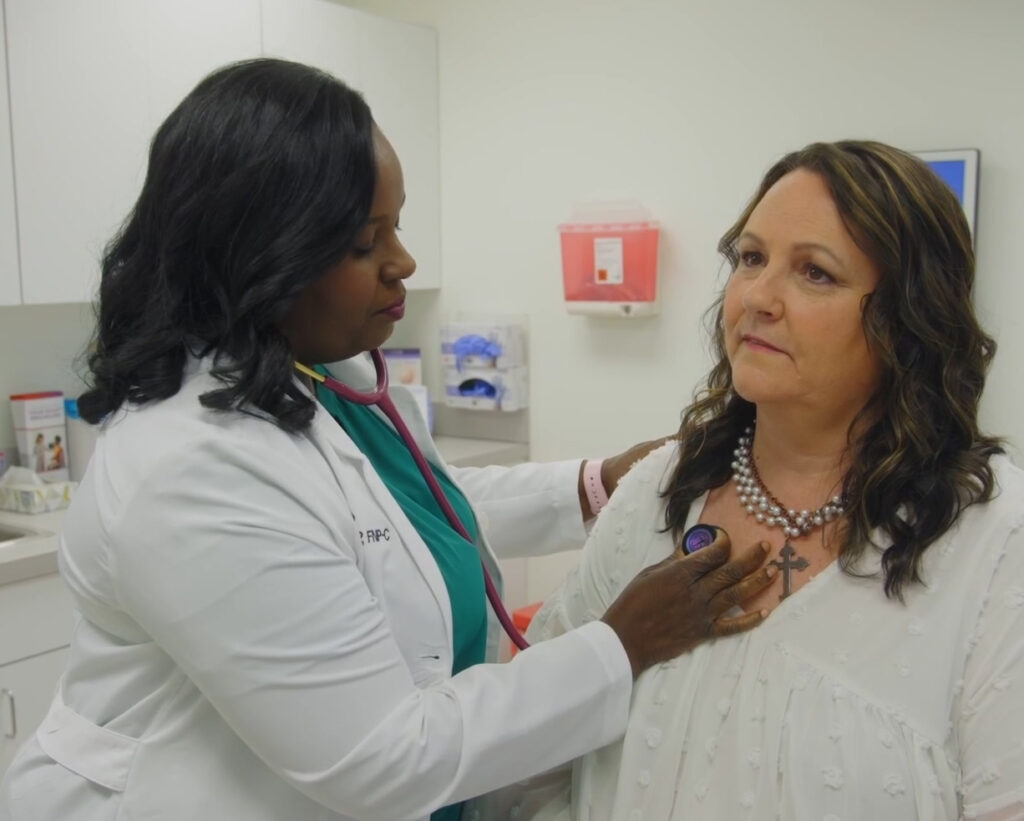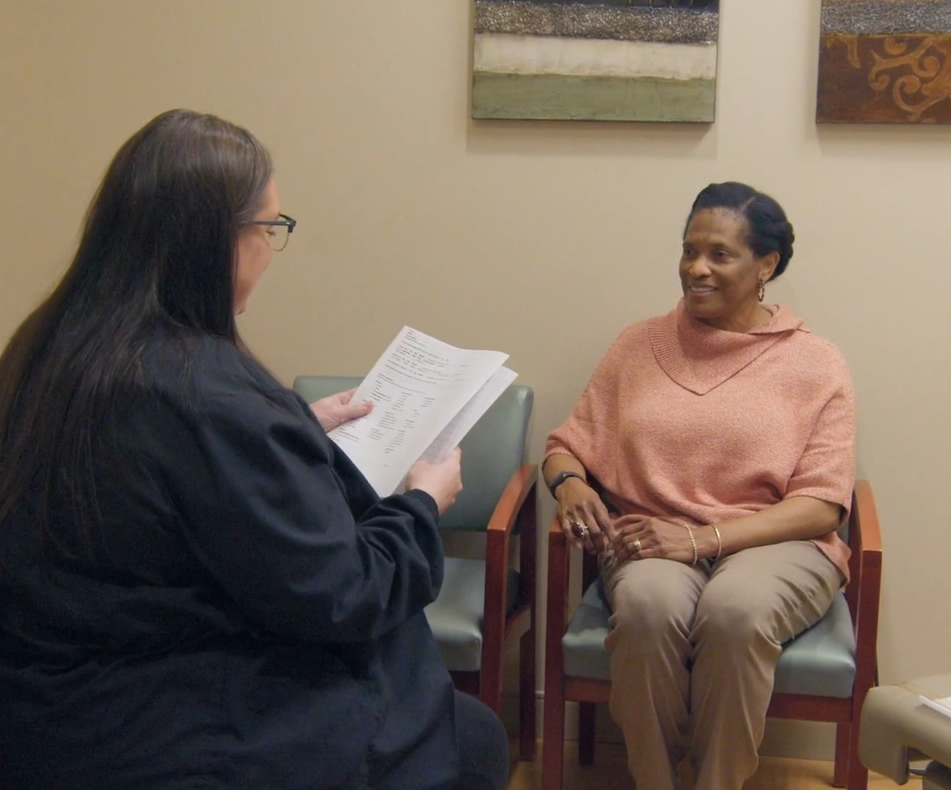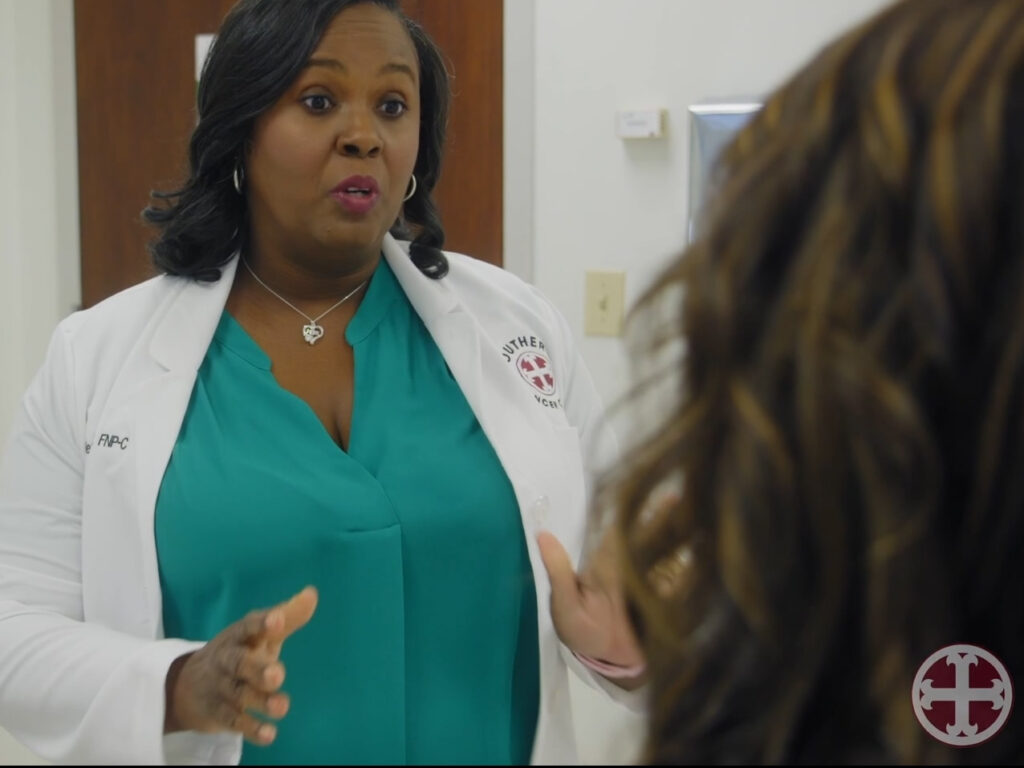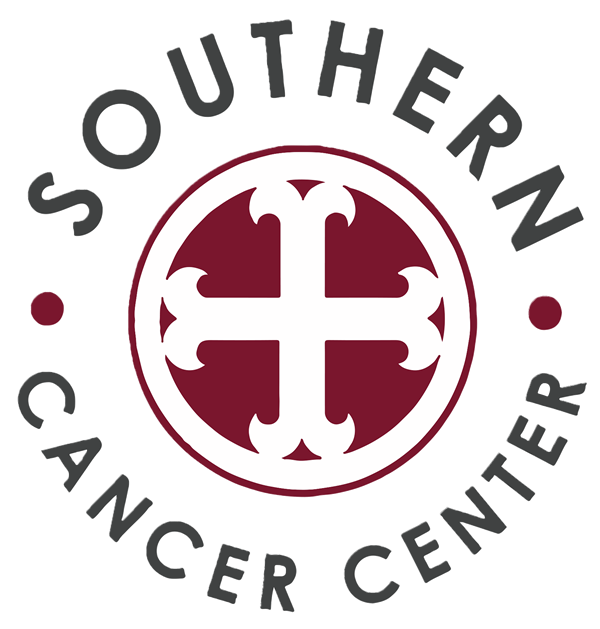Genetic Testing and Counseling
Genetic Risk Evaluation and Testing Program
We don’t just treat cancer, we manage the risk. About 10% of all cancers are hereditary, and there are more than 50 hereditary cancer syndromes that are associated with specific gene mutations. Genetic risk evaluation and testing can help patients understand their cancer risk and make informed decisions about lifestyle alterations, medication, screening, surgery and other preventative measures that could reduce their risk and lead to early detection.
At Southern Cancer Center, we offer comprehensive counseling and genetic testing for patients with a significant family and/or personal history of cancer.
About Genetic Testing
Your genes may predict your risk of cancer, and certain genetic tests may help your doctors provide better screening or treatment options.
What is Genetic Testing?
Why is Testing so Important?
Although genetic testing cannot predict whether you will actually develop cancer, understanding your risk of developing the disease can help you and your doctor make informed decisions about prevention strategies.
Counseling Session
Once you decide to explore genetic testing with Southern Cancer Center, you will be scheduled to come in and meet with one of our providers. We will review your personal and family history of cancer, complete a physical exam and make a recommendation regarding genetic testing. During this session, you will learn:
- How genetics play a role in cancer
- How your personal and family medical history affects your cancer risk

Genetic Testing
After your counseling session, you will discuss your options with your provider and decide if you would like to have a genetic test. This is a very personal decision and you should carefully consider the risks and benefits. Our team is here to help you make this decision by:
- Discussing the medical, social and ethical impact of genetic testing on you and your family
- Explaining the scientific process of genetic testing in an easy-to-understand manner
- Addressing all questions and concerns that you may have
If you decide to have testing done, we will obtain the testing sample from you that day. Your results should take two to three weeks to receive.


Results Consultation
Once we receive your results, we will schedule an appointment for you to come back for a consultation. We will interpret and explain your test results. If your results indicate an increased cancer risk, you will likely have a lot of questions and concerns. We will thoroughly discuss all recommendations and options for follow-up screenings, treatment and preventative measures, and make sure you leave the appointment with a clear plan of action.
Health Insurance & Genetic Testing
Genetic testing may be covered by your health insurance. If you do not have insurance or your insurance company will not cover the test, financial assistance may be available to you. Some patients are concerned about discrimination based on test results. There are federal and state laws in place to protect patients from discrimination. These laws prevent health insurance companies from charging more or denying coverage to someone because of genetic mutations.

Is Genetic Testing Right for Me?
If you meet any of the following criteria, consider scheduling an appointment with us:
- Family member with multiple primary cancers
- Several relatives on one side of the family who have had the same type of cancer
- Several cancers in the family linked to a single gene mutation (such as breast, ovarian, colon or pancreatic cancers)
- Family or personal history of early onset cancer (usually before age 50)
- Relatives with a rare cancer, such as breast cancer in a male, ovarian cancer or retinoblastoma
- Ashkenazi Jewish ancestry with breast or ovarian cancer at any age
- 10-20 colon polyps removed over your lifetime
- Family members with a known genetic mutation
High Risk Breast Cancer
For women who have been identified as having a higher than average risk of developing breast cancer, Southern Cancer Center offers on-site High Risk Breast Cancer services. Learn more HERE.
